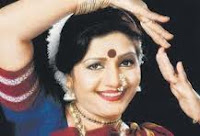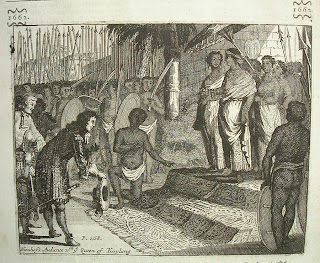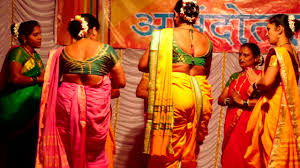Thiruvathirai Nombu –Arudra Darishanam
This is the day, according to the tales when Lord Shiva performed his delightful dance for his two faithful disciples, Vyagrapadha and Adi Sesha. This dance is said to have energized the entire planet. The five actions that are represented by Creation, Protection, Destruction, Embodiment, and Release are all a part of the cosmic dance that Lord Shiva performs.
There is another urban legend that tells of a Yogi by the name of "Karagavanam" who plotted the death of Lord Shiva and gave him all manner of dangerous weapons and extinct animals. They were greeted by Lord Shiva, who then proceeded to perform the cosmic dance while wearing them as jewels.
On the day of the Full Moon, which occurs on the longest night of the year, the annual Arudhra Darshan festival is held every year during the months of Margazhi or Dhanur masam (December to January). Lord Nataraja is honoured with a celebration known as Brahmostavam every year in Chidambaram, which is located in Tamil Nadu. The Five Sabhas, also known as Lord Nataraja's home, are collectively referred to as the Pancha Sabha. These are 1) Kanakasabha (Gold) - at Chidambaram (Thillai or Tillai), 2) Velli Sabhai (Silver) at Madurai, 3) Ratnasabha (Ruby) at Tiruvalankadu, 4) Tamrasabha (Copper) at Tirunelveli, 5) Chitrasabha (Pictures) at Kutralam. During the month of Thiruvathirai, the Thillai Chidambaram Festival lasts for ten days. At approximately three in the morning on the 10th day, the Maha Abhishekam will be performed at Raja Sabhai in honour of Lord Nataraja and Goddess Sivakamasundari. This will take place on the 9th day night. The Mahaabhishekam is expected to last between three and four hours.
Thereafter special Thiruvabaranam (Sacred Gems) Alankaram and Rahasiya Puja would be done to Sri Natarajar. The Pancha Murthi Thiruveethi Ula is scheduled to start at approximately 12 Noon. Lord Natarajar and Goddess Sivakami will bestow the devotees with Aarudra Darisanam shortly after the Pancha Murthi Ula ceremony in the afternoon, and then they will proceed inside Kanaka Sabhai (Golden Sabha).

Tamil hymns of Maanikavasagar's Thiruvasagam:
During the entire duration of the Margazhi Masam festival, the hymns Thiruvempavai and Thiruppalliezhuchi are recited in each and every Shiva temple. The idols of Nataraja (Lord Shiva) and his wife Shivagami, the Goddess Parvati, are transported out of the temple precincts for a magnificent procession on the precise day that Thiruvathirai occurs. It is one of the most important ceremonies that take place in nearly all of the Shiva temples in the state of Tamil Nadu.
Nombu is a Tamil word that can imply either "fasting" or "vratham," which is a form of sacred devotion that is led by fasting. In the Indian state of Tamil Nadu, single women are expected to fast during the day. They will eat something before daylight, and then they will begin their fast. After seeing the moon rise, they will break the fast that they have been observing. Some people choose to observe the Nombu, or fast, for the full 10 days, which concludes on Thiruvathirai day.
It is thought that unmarried women or young girls observe this Nombu in order to beget nice spouses for themselves in the future. Married ladies are said to observe this Nombu in order to ensure the long life of their husbands. On this day, married ladies also remove the sacred yellow Mangala thread known as the "Charadu" that is tied around their waists during the wedding ceremony. Young women who are not yet married have a Nombu masquerade wrapped around their right wrists to keep them from marrying.
Thiruvathira in Kerala
The event is observed throughout Kerala as a commemoration of the birth of Lord Shiva. According to the Malayalam calendar of Lord Shiva, the name Thiruvathira translates to "Thiruvathirai nakshatra," which means "star." There is also the notion that this celebration is a memorial to the passing of Kamdeva, the Hindu god of lust and sexual desire. Together with the more well-known celebrations of Onam and Vishu, the traditional festival of Thiruvathira holds a significant place of importance in Kerala.
Since ancient times, members of the Nambuthiri, Kshatriya, and Nair groups in Kerala have held celebrations for this day. Unmarried women observe a partial fast on this day in the hopes of finding a good husband, and married women take a fast beginning on the day before Makayiram nakshatra and continuing on the day of Thiruvathira for the health and happiness of their husbands and families. It is primarily a festival for women. Poothiruvathira is the name given to the first Thiruvathira performed by a woman after she has been married.
Rice and other foods made with rice are off-limits during the fast in Kerala. The traditional meal consists of cooked broken wheat and Thiruvathira puzhukku, which is a delicious mix of tuber vegetables such as colocasia – (chembu), yam (chena), Chinese potato (koorka), and sweet potato (madhurakizhangu), along with long beans (vanpayar) and raw plantain or banana fruit (ethakaya). These vegetables are cooked in a thick paste made of freshly ground coconut. Koova payasam, a sweet dish comprised of arrowroot powder, jaggery, and coconut milk, is being served as the dessert.
Thiruvathirakali is a form of dance that is performed in Kerala by women on the day of Thiruvathira to the accompaniment of Thiruvathira paatu, which are folk songs telling tales of lovesick Parvati, her longing and penance for Lord Shiva's affection, and Shiva's might and power. The dance is performed to the accompaniment of Thiruvathira paatu. The delicate dances that are performed by a group of dancers revolving around a nilavilakku exemplify the concept of lasya, which refers to the passionate appeal and grace that is associated with the feminine. The dance is performed in a circular pattern that involves pirouetting, and it is accompanied by singing and clapping of the hands.
Thiruvathirakali in Tamil Nadu
The dessert known as Thirvathirai kali is a special offering that is made to be presented to Lord Nataraja. Then there is Ezhu Kootu, which is a savoury dish that is cooked with seven vegetables and pulses, including raw banana, sweet potato, yam, yellow pumpkin, broad beans, beans, cluster beans, okra, brinjal, colocasia, mochai (also known as Lima beans or butter beans), and so on. The dish known as Thiruvathirai kali is a delectable custard that is cooked.
Another legend explains how the custard was made: Once upon a time, there was a devoted follower of Lord Shiva named Sendanar who lived in abject poverty. He served the people and the temples without expecting anything in return. In order to verify the sincerity of his devotion, Lord Shiva assumed a disguise and went to the man's home, where he begged for some food to eat. The devotee only had a very small amount of edible rice flour and a little jaggery, so he combined the two ingredients, created a custard with as much devotion as he could muster, and presented it to Lord Shiva. Lord Shiva, who was pleased with Sendanar's dedication, accepted it and also told the reigning king and the rest of the world about Sendanar's unparalleled devotion and service to humanity. Lord Shiva was pleased with Sendanar's devotion.















Comments